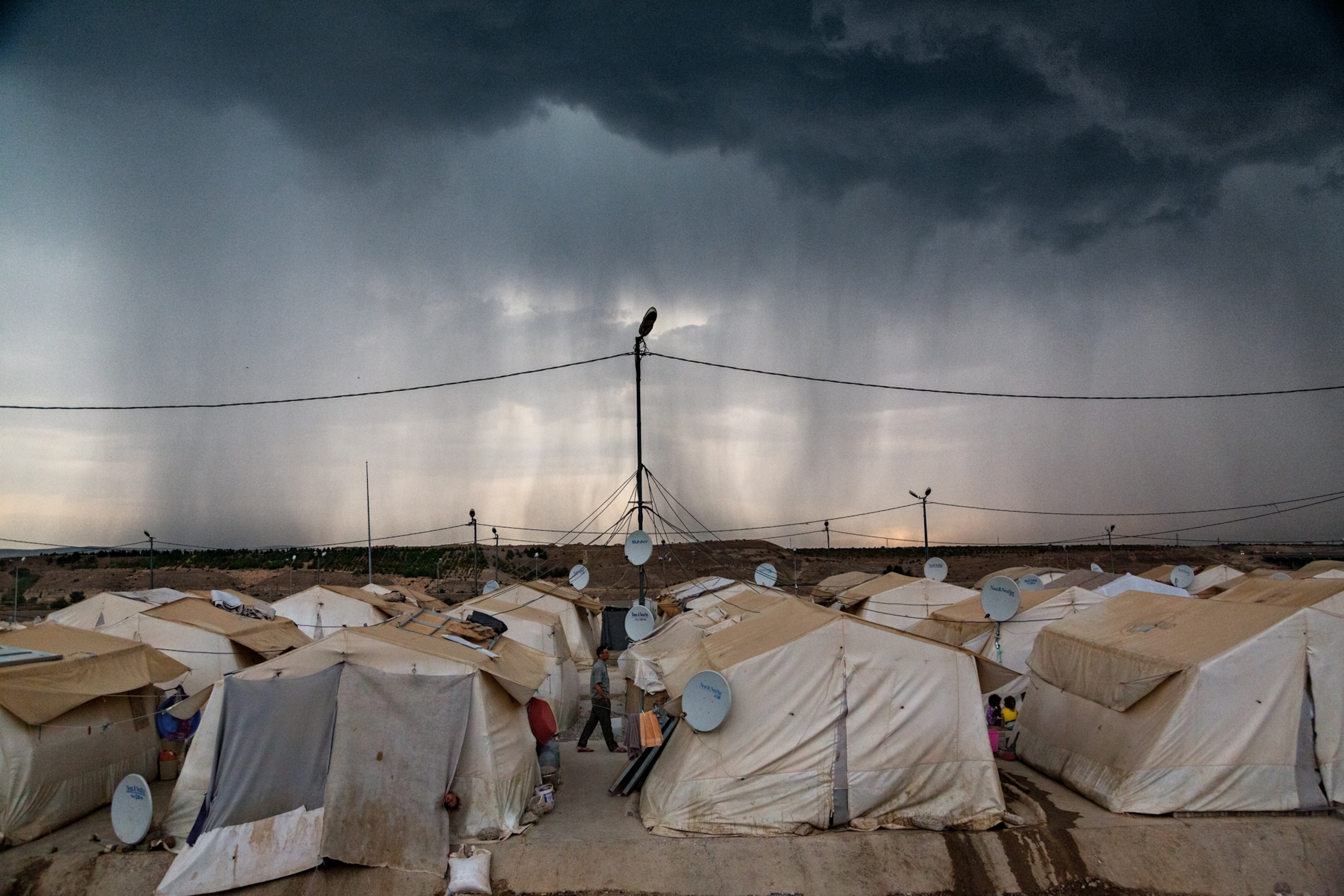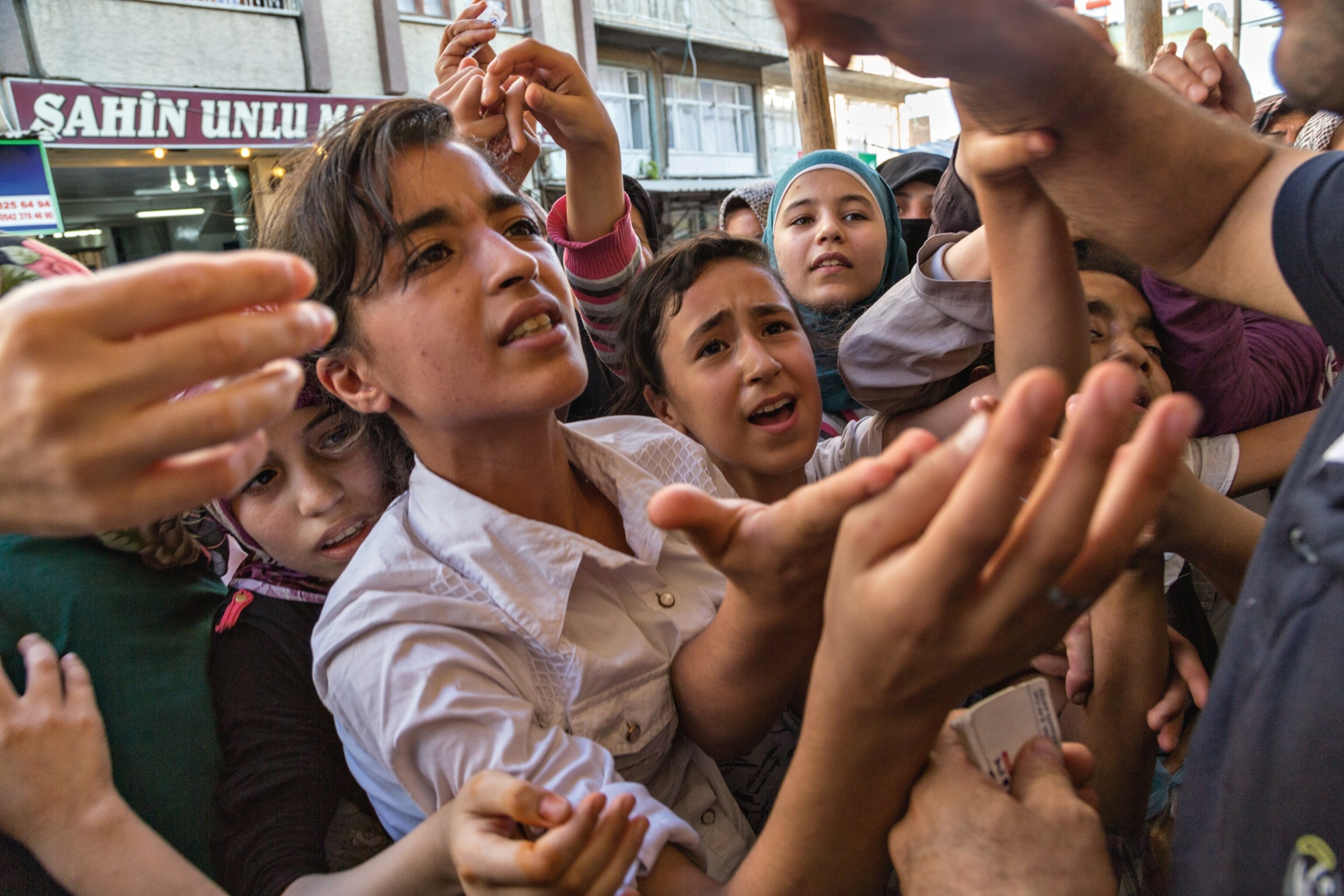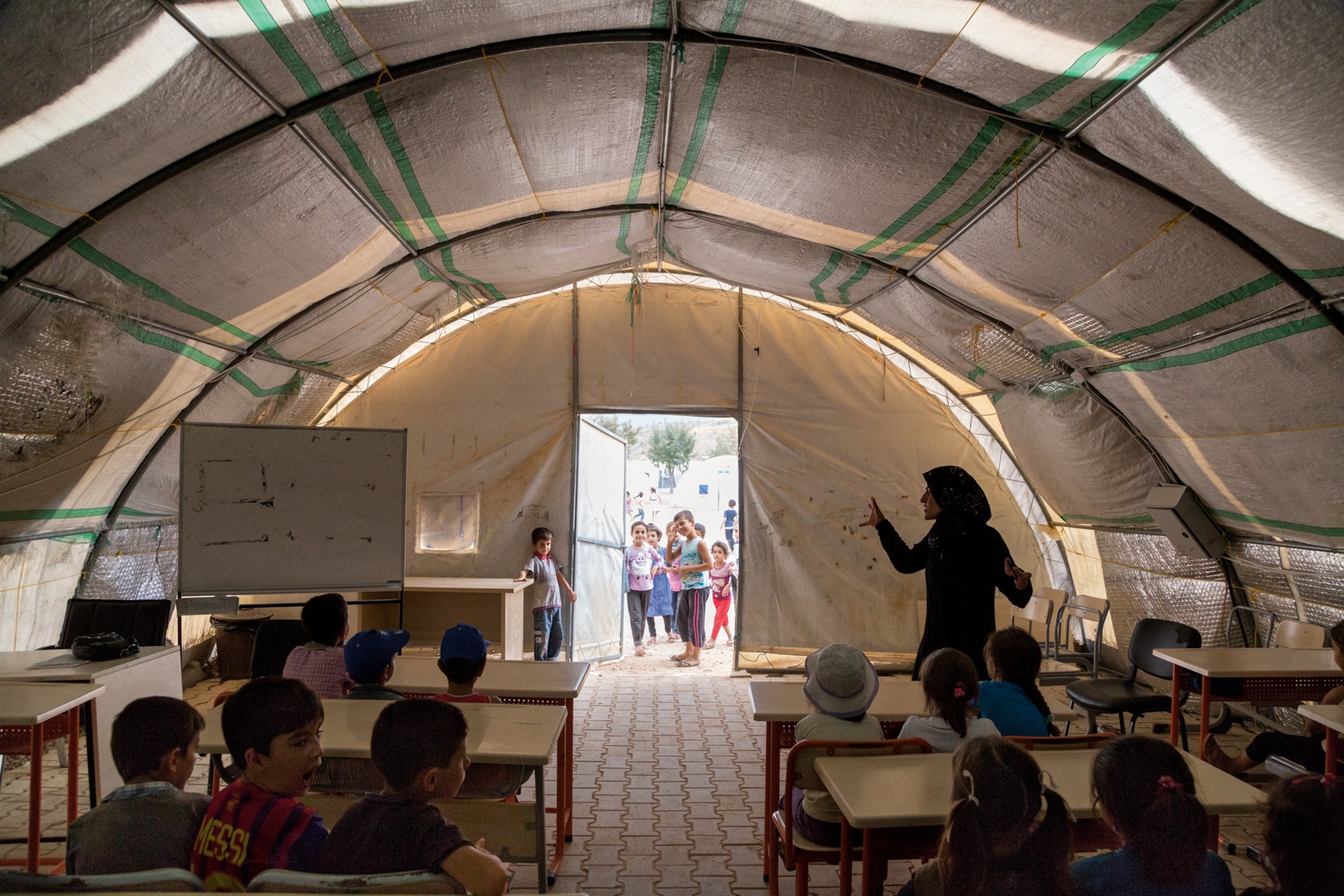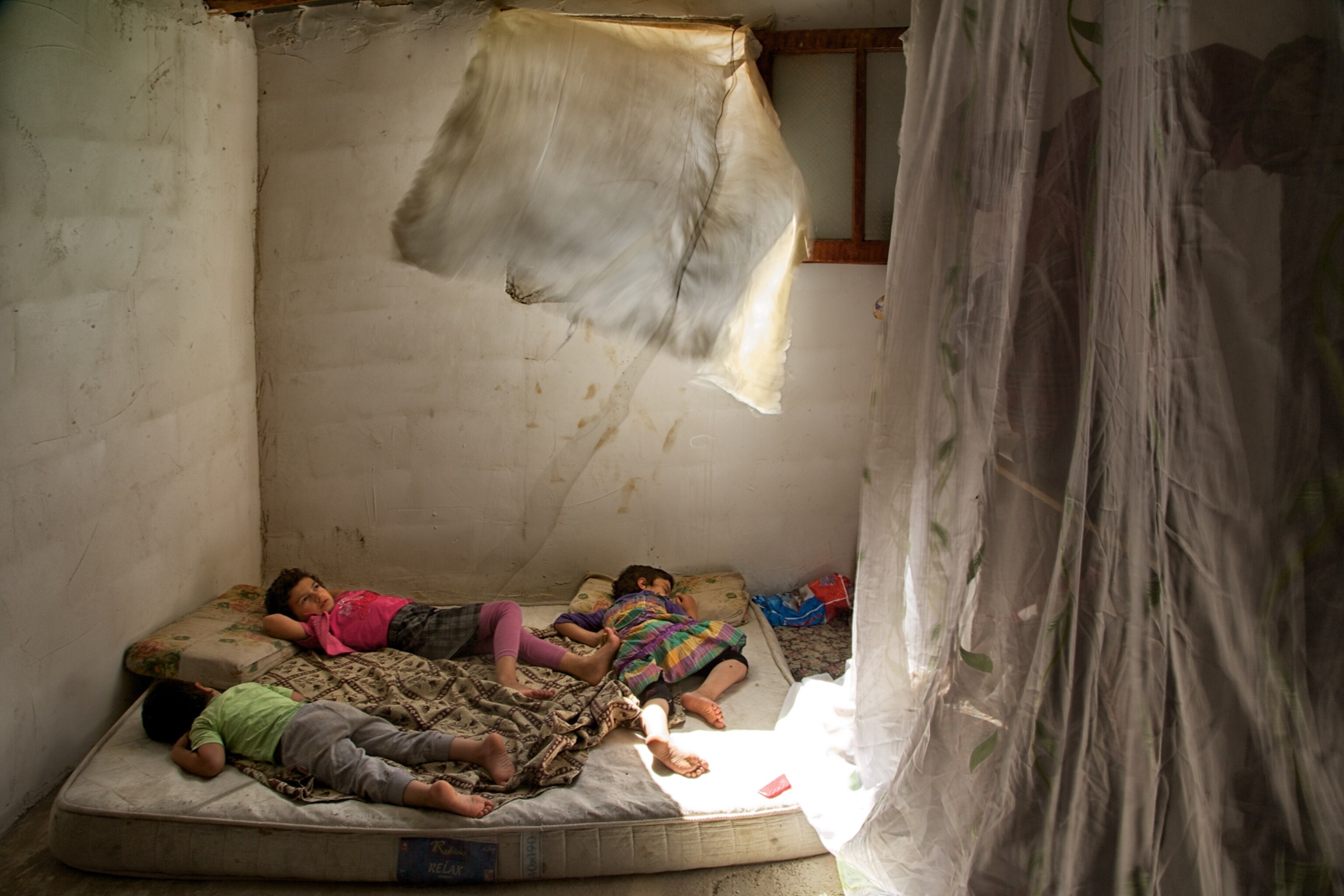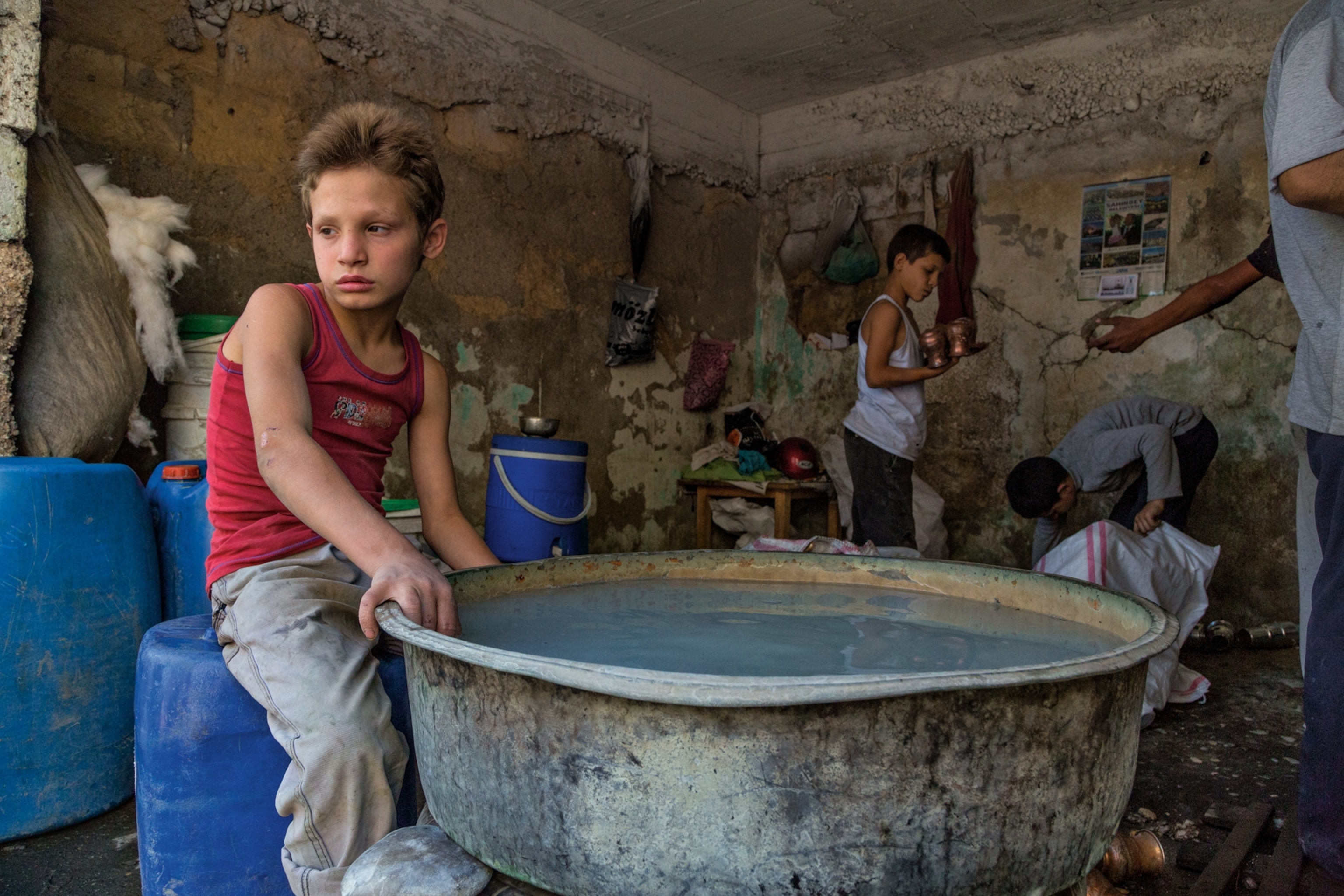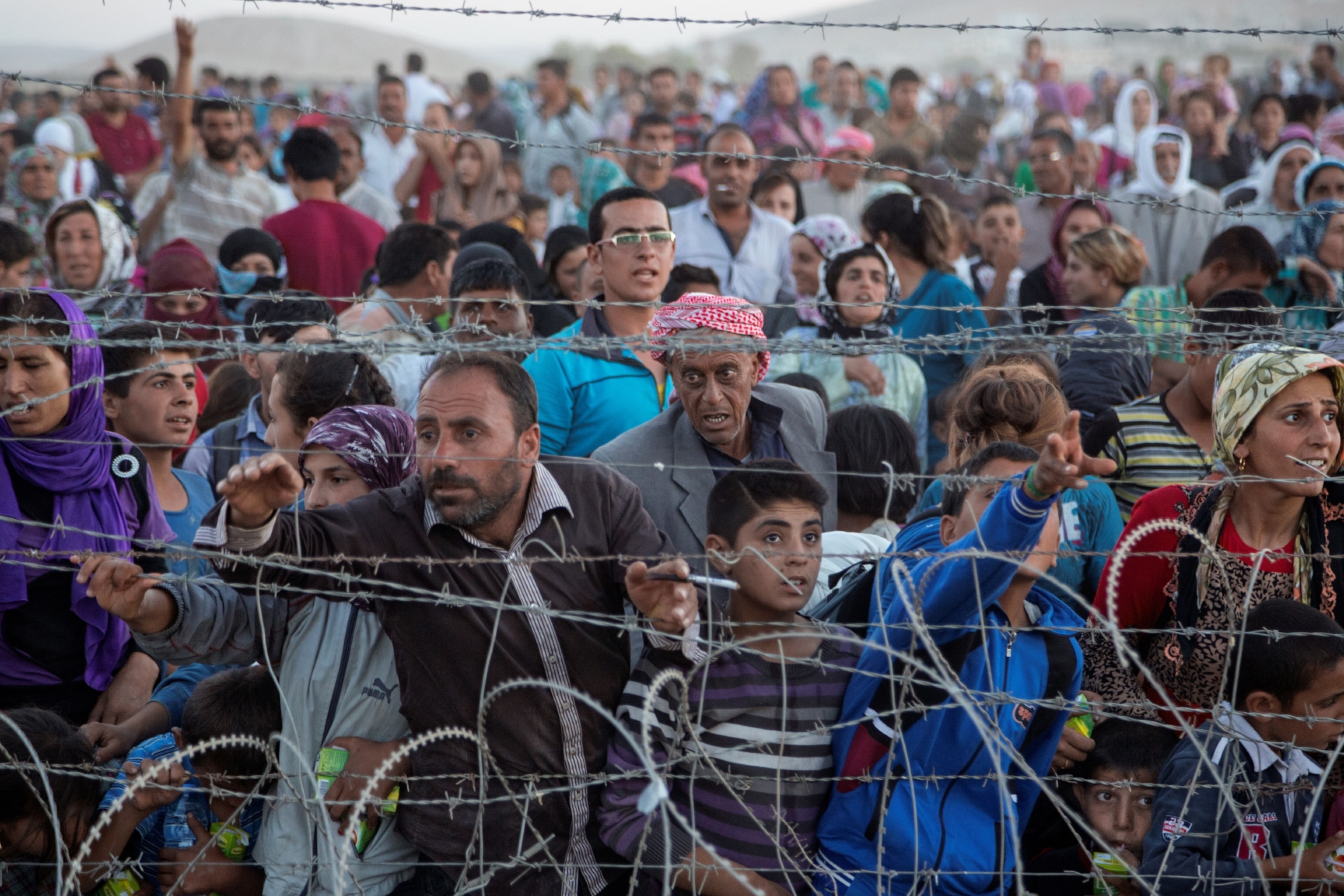
Fleeing Terror, Finding Refuge
Millions of Syrians escape an apocalyptic civil war, creating a historic crisis.
What happens when you become a war refugee? You walk.
True, in order to save your life—for example, as militants assault your village—you might first speed away by whatever conveyance possible. In the family car. Or in your neighbor’s fruit truck. Aboard a stolen bus. Inside a cart pulled behind a tractor. But eventually: a border. And it is here that you must walk. Why? Because men in uniforms will demand to see your papers. What, no papers? (Did you leave them behind? Did you grab your child’s hand instead, in that last frantic moment of flight? Or perhaps you packed a bag with food, with money?) It doesn’t matter. Get out of your vehicle. Stand over there. Wait. Now, papers or no papers, your life as a refugee genuinely starts: on foot, in the attitude of powerlessness.
('Things have only gotten worse': French Jews are fleeing their country)
In late September near the Mürşitpınar border crossing in Turkey, Syrian refugees came pouring across the fallow pepper fields by the tens of thousands. They were ethnic Kurds. They were running from the bullets and knives of the Islamic State. Many came in cars, in sedans and hatchbacks, in delivery vans and pickup trucks, raising clouds of fine, white dust from some of the oldest continuously farmed fields in the world. The Turks would not allow such a motley caravan to pass. A parking lot of abandoned cars grew at the boundary. One day black-clad Islamist fighters came and got the cars, stole them from right under the noses of Turkish soldiers. The soldiers watched. They couldn’t have cared less.
So it begins. You take a step. You exit one life and enter another. You walk through a cut border fence into statelessness, vulnerability, dependency, and invisibility. You become a refugee.
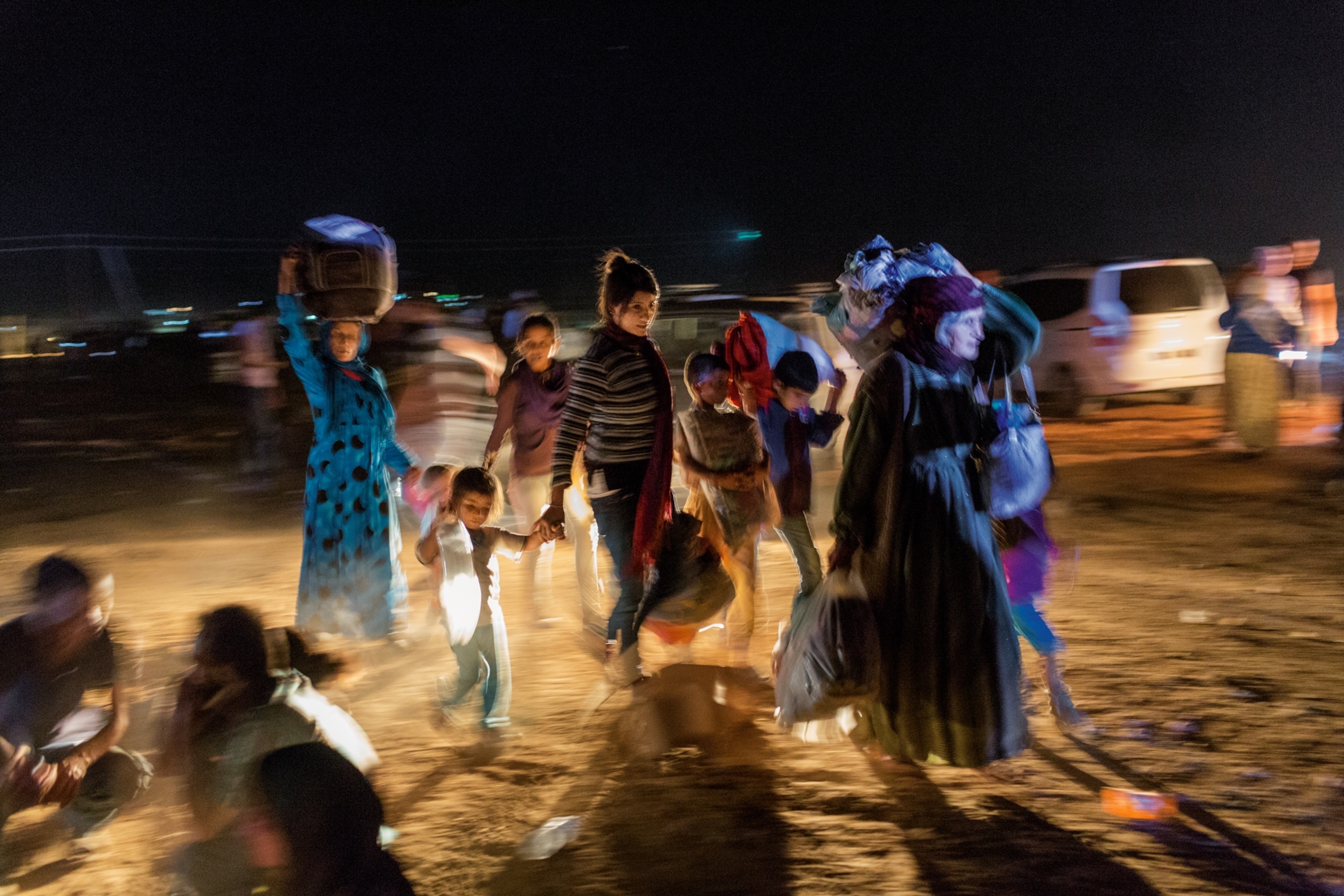
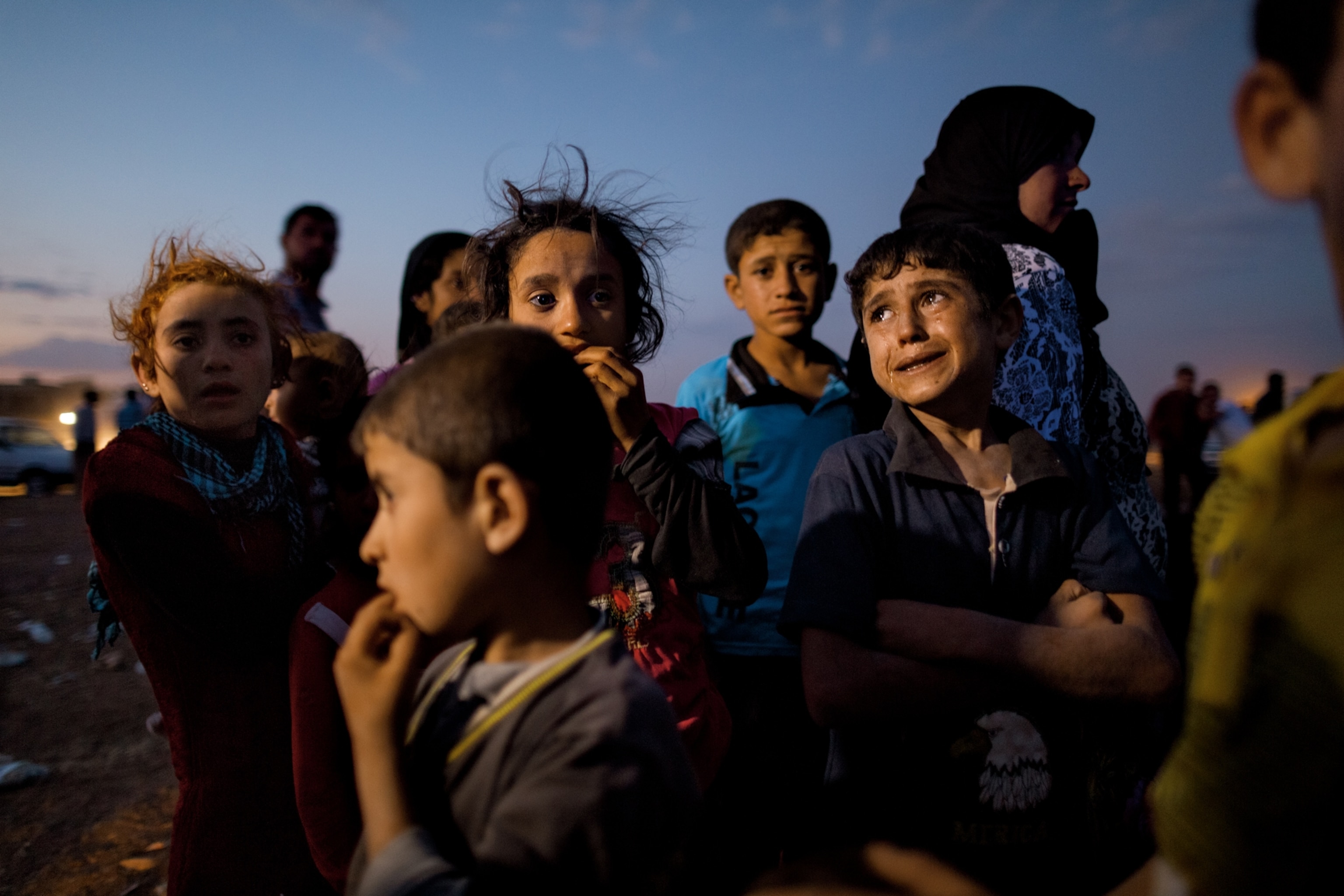
“They burned the city twice,” Atilla Engin said, standing atop Oylum Höyük, a barren man-made hill in southeastern Turkey. “We don’t know who or why. There were many wars back then.”
Engin is a Turkish archaeologist from the University of Cumhuriyet. He stared into a square pit being dug into the mound’s summit by villagers working under the direction of his graduate students. The hole was 30 feet deep, and the mound was among the biggest in Turkey: 120 feet high and 500 yards long, a lopsided layer cake of time. Its oldest evidence of occupation dated from the Neolithic, some 9,000 years ago. But above that—built, abandoned, and long since forgotten—lies the debris of at least nine human eras. Copper Age masonry. Bronze Age cuneiform tablets. Hellenistic coins. Roman and Byzantine brickwork.
Many empires had seesawed back and forth across the often embattled heartland of Asia Minor. Engin was focused on a walled Bronze Age settlement, possibly a powerful city-state called Ullis, that was mentioned in ancient Hittite records and Iron Age papyri. To reach this lost city, his team had shoveled through strata that looked like cardiograms of upheaval—rumpled horizons of soil, ash, and rubble, 9,000 years of systole and diastole, construction and destruction.
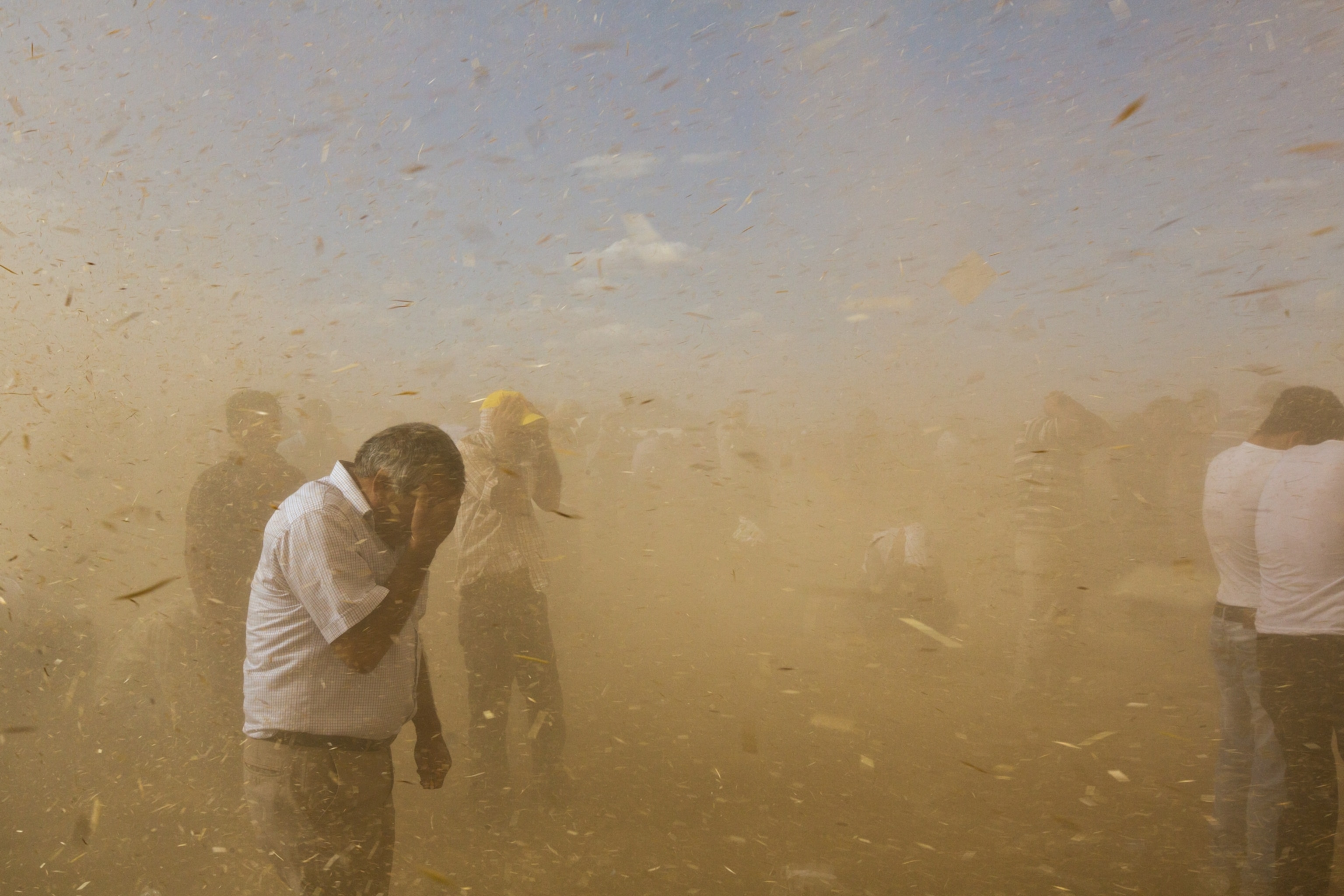
“Things don’t change,” Engin said. He had the tired half smile of a man who thought in millennia. “Outside powers still fight over this area—the Mesopotamian plain. It is the meeting place of Africa, Asia, and Europe. It is the center of the Middle East. It is a gateway of the world.”
From a ladder that he used to photograph his sprawling dig, Engin could almost see the refugee camp near Kilis, a nearby Turkish town on the Syrian border. Some 14,000 people who had fled Syria’s apocalyptic civil war have been stewing for two and a half years in the camp, stupefied by boredom. An additional 90,000 Syrians have thronged the ramshackle town, doubling its original population and driving up the rents. (The previous week an anti-Syrian mob had attacked refugees and smashed their cars.)
There are about 1.6 million Syrian war refugees in Turkey. Another eight million or more are internally displaced within Syria or eke out a hand-to-mouth living in such fragile way stations as Lebanon and Jordan. The war has bled into neighboring Iraq too, of course, where the zealots of the Islamic State have uprooted another two million civilians. All told, perhaps 12 million souls are adrift across the larger Middle East. Like the refugee crisis that festered during and after the Soviet-Afghan war of the 1980s—a Cold War contest that displaced and then utterly ignored millions of angry, hopeless people, spawning years of transnational Islamist terrorism—the political fallout in the region is unfathomable and will be lasting.
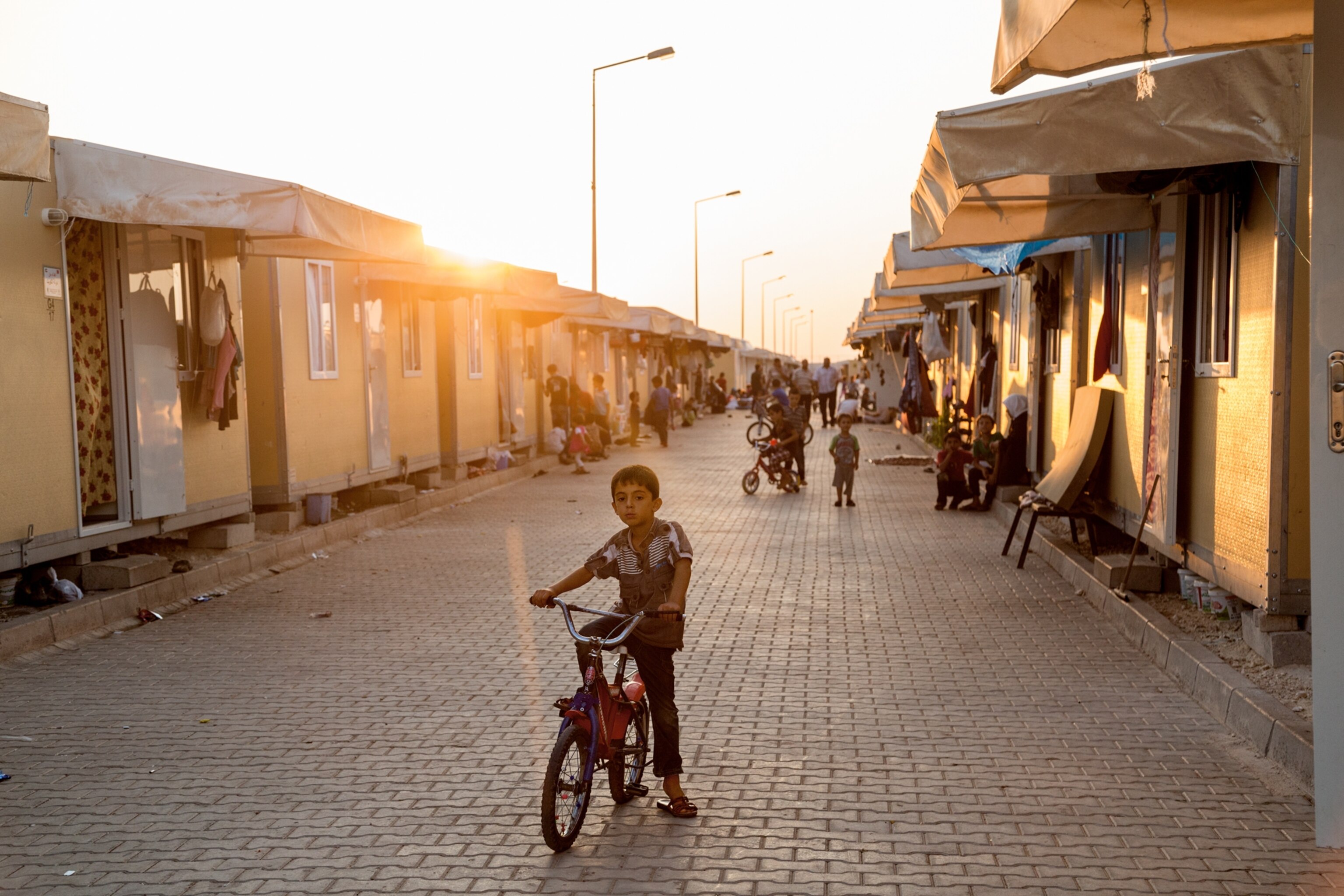
“This isn’t just about Turkey or Syria anymore,” Selin Ünal, a spokeswoman for UNHCR, the UN refugee agency, told me in the Kilis camp. “This is a problem that will affect the entire world. There is something historic going on here.”
I had trekked to the Oylum mound in southeastern Turkey as part of the Out of Eden Walk, a seven-year journey that is retracing the first human diaspora out of Africa to our species’ land’s end at the tip of South America. Along my trail through the Middle East, I had encountered desperate men and women cast up everywhere, like flotsam, by Syria’s many-sided war. They picked tomatoes for $11 a day in Jordan. They begged for pocket change on Turkish street corners. Some I discovered squatting under tarps on the Anatolian steppe, escapees from the wrath of nationalist mobs in the cities. Their ragged children tracked my movements with hard, appraising eyes.
The Oylum mound knuckles up from the heart of the Fertile Crescent—the ancient Levantine temperate zone where modernity was born. It was here that humankind first settled down, founded cities, invented the idea of a fixed home. Yet for months I had been stumbling across a vast panorama of mass homelessness. I asked Engin what had befallen the pioneering urban dwellers at Oylum once their citadel had been breached and torched by some invader 3,800 years ago. He was unsure. “They went back into the countryside,” he said. He placed a palm on the frail wall of his pit. “They forgot cities. They got poorer.”
And, doubtless, some regrouped. Perhaps they even conquered their conquerors. Forced migration begets empire.
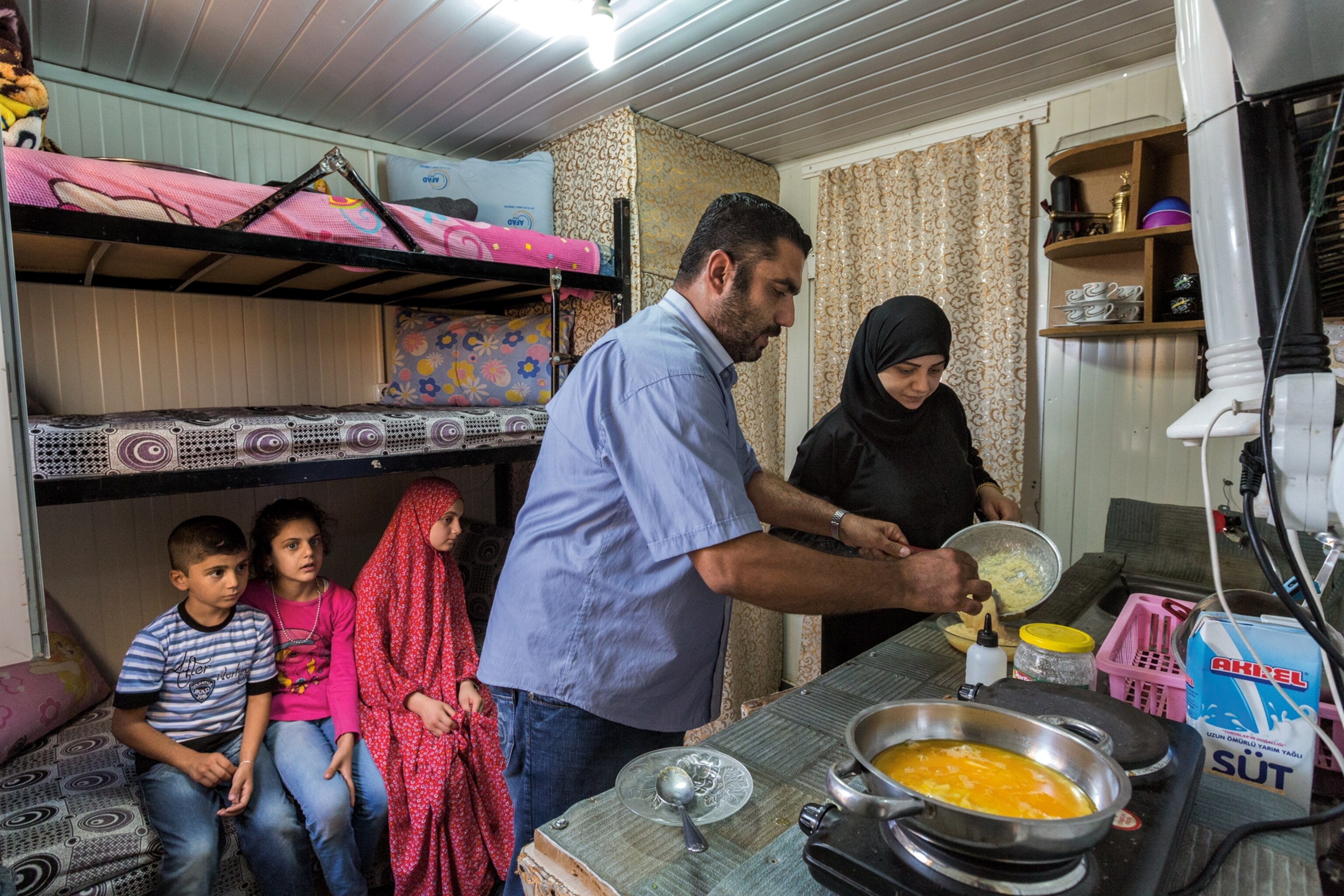

The United Nations calculates that by the end of 2013, more than 51 million people worldwide were displaced because of warfare, violence, and persecution. More than half were women and children. Among Syrian refugees in Turkey, the proportion of women and children zooms to 75 percent. The men stay behind to fight or protect property. The women and children become destitute wanderers. Journalists rarely follow these women’s fates into urban slums, crowded camps, plastic lean-tos pegged in watermelon fields. Into brothels. Their woes are not telegenic. There are few dramatic explosions. There are no flags or front lines to be contested by the dictator Bashar al Assad, by the countless rebels. Syria’s women suffer their wars alone, in silence, in alien lands.
“It is a huge hidden issue,” said Elif Gündüzyeli, a social worker with Support to Life, a Turkish relief organization. “And these women’s vulnerability is transforming society.”
In secular Turkey a tidal wave of unaccompanied Syrian women is reviving banned Islamic traditions such as polygamy. In Jordan refugee families marry off daughters as young as 13, hoping to leverage them out of camps, off the streets, out of poverty.
“Nobody protects you,” said Mona (not her real name), a young Syrian woman stranded in the Turkish city of Şanlıurfa. “You get harassed constantly. Three men tried to pull me into a car. They grabbed my arm. I screamed. The people on the sidewalks did nothing. They did nothing. I want to leave this place. Can you help me? Where can I go?”
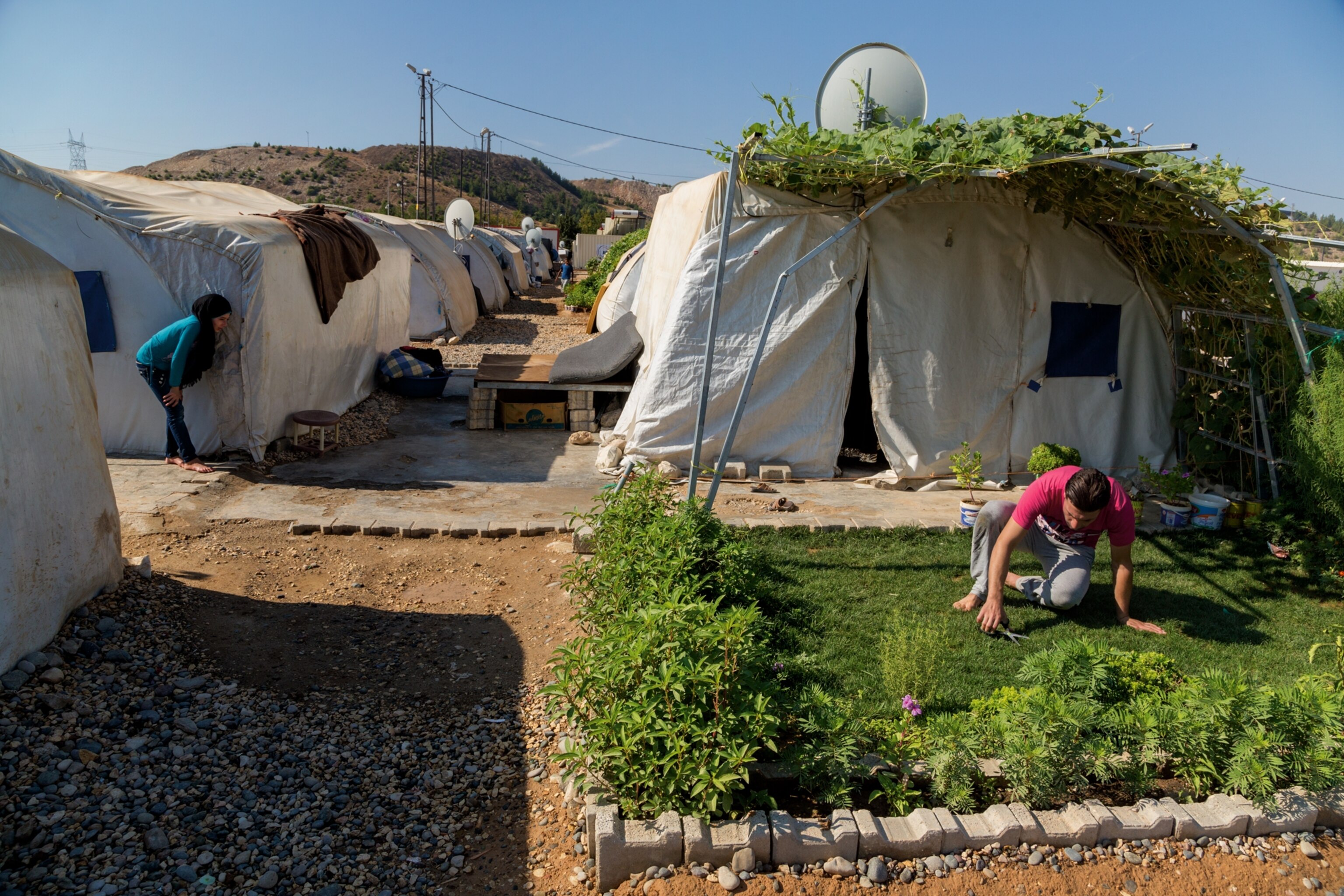
In other Turkish cities teeming with refugees, anti-Syrian protests have erupted. The spark in one case was the knifing of a Turk by a Syrian neighbor. So corrosive are the sexual politics of refugees in Turkey that a false rumor attributed the killing to the Turk’s demand for sex with the Syrian’s wife in return for rent.
“Four times—no, five,” a Syrian Kurdish woman named Rojin (also a pseudonym) told me, counting the number of marriage proposals she had received in Turkey over the past week. “Two,” her sister added. “Three,” said a third sister. The women sat cross-legged in a barren room decorated with a dandelion in a Coke bottle. They rarely left the room. A fourth relative had not been propositioned—their senile grandmother. The old woman sat blinking, lost in dreams. She was hard to watch. She did not understand what she had lost. She had been born in Aleppo when Syria was a French mandate. Her granddaughters were hoping for asylum in France.
In the charred ruins of his ancient city under the Oylum mound, Engin has discovered two bodies. Both these victims of the city’s mysterious destruction were female. We know next to nothing about them except perhaps the pathos of their social status. Their skeletons lay curled inside the kitchen of a grand mud-brick palace.
Jason Ur, an archaeologist at Harvard, studies the changing settlement patterns in ancient Assyria. “Population displacements have a long and sad history in the region,” Ur says. They happened “repeatedly over the last 3,000 years at least.”
Bas-relief carvings from Mesopotamia depict Iron Age armies prodding entire populations before them. In these ancient scenes the civilians are captive, harnessed. They wear chains. In this way whole communities were relocated, by violence, to work as agricultural labor for one of the world’s earliest empires. In a forthcoming paper, Ur and his colleague James Osborne suggest that settlements began to appear in eastern Syria between 934 and 605 B.C., in a “repeating pattern of evenly spaced small villages” laid out by the neo-Assyrian kings.
Saddam Hussein, the “butcher of Baghdad,” did much the same thing in northern Iraq, replacing “unruly” Kurds with obedient ethnic Arab farmers. A century ago the Turks cleaned out “disloyal” Armenians, killing up to 1.5 million people and giving away their lands to Turkish neighbors. This is a story that would be familiar to the Sioux, to the Apache. Ethnic cleansing, ruthless social engineering, “homesteading”—these are not new concepts. They arose with the city-state.
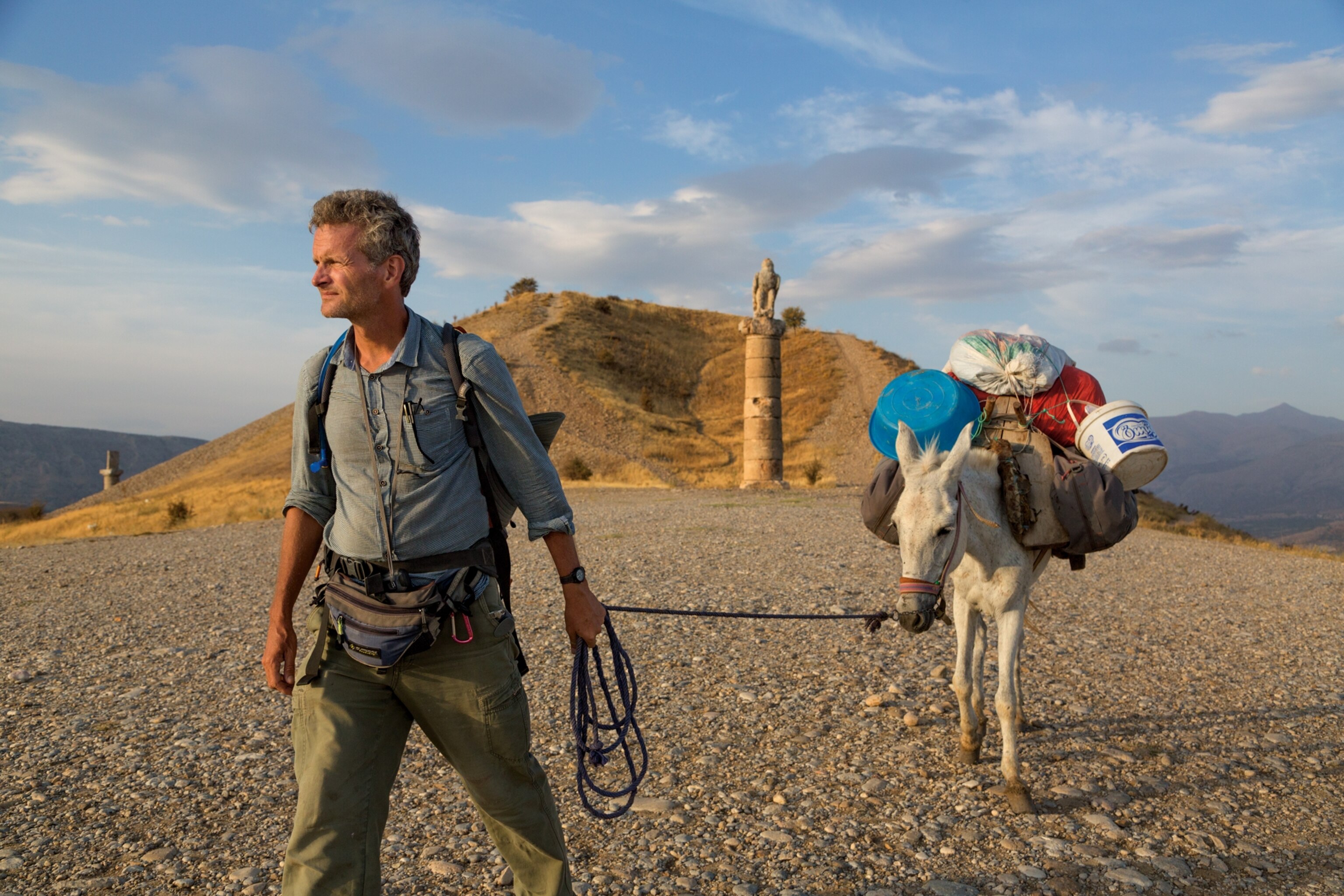
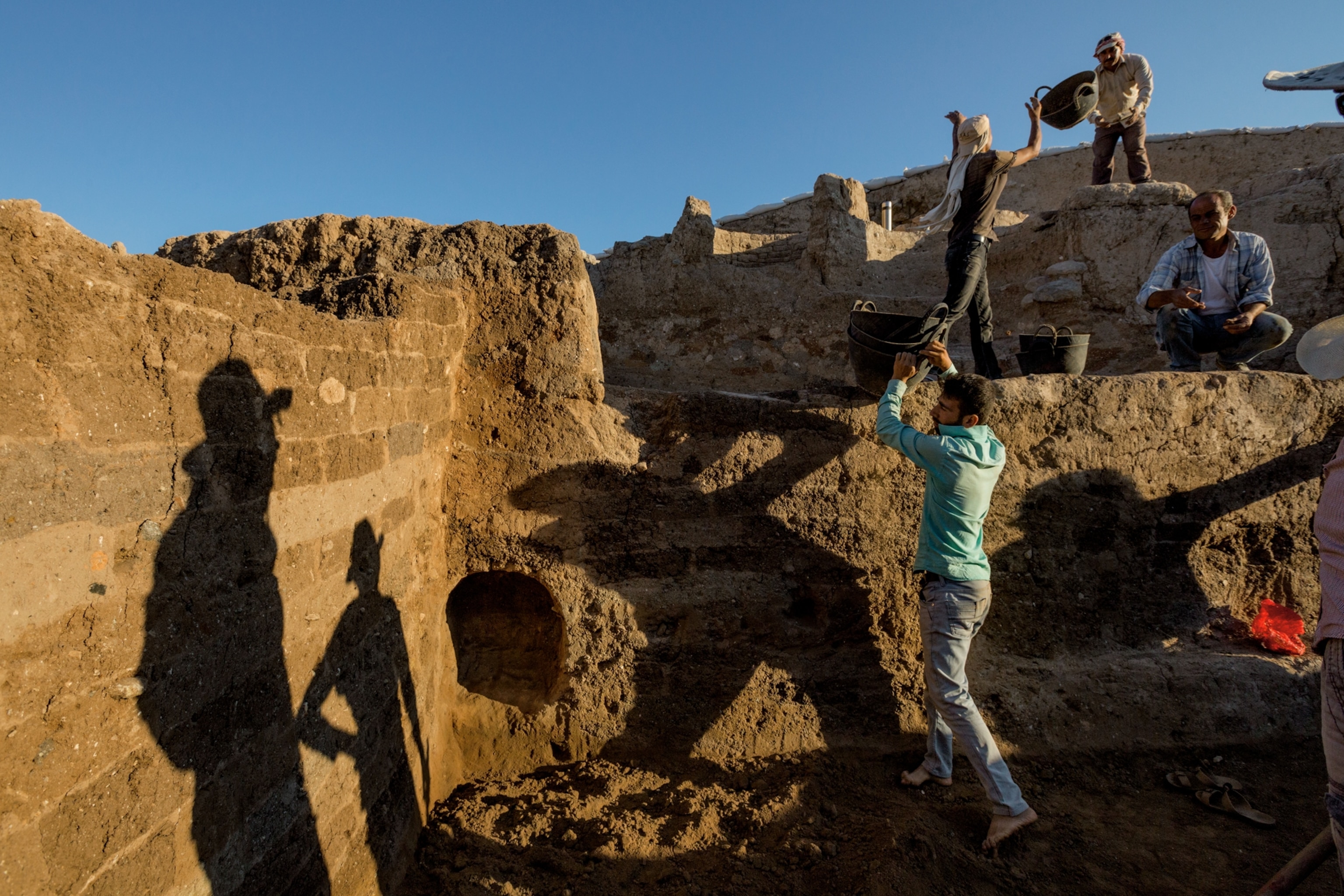
Inscriptions from a temple built by neo-Assyrian King Ashurnasirpal II, who ruled Nimrud from 883 to 859 B.C., south of present-day Mosul, Iraq: “I captured many troops alive: from time to time I cut off their arms [and] hands; from others I cut off their noses, ears, extremities. I gouged out the eyes of many troops. I made one pile of the living [and] one of heads. I hung their heads on trees around the city.”
And: “I cleansed my weapons in the Great Sea and made sacrifices to the gods.”
Such primitive boasting sounds contemporary, like an Islamic State video posted on YouTube.
Anatolia—the sprawling Asian peninsula of eastern Turkey. A continental crossroads. The eternal frontier of empires. A palimpsest of forced migrations.
I walked its chalky roads past the broken foundations of Assyrian cities. I saw pediments of Greek columns swallowed in weedy gardens. I passed derelict Armenian churches turned to mosques. I trod on highways of stone buffed by endless processions of Roman feet. In antique Harran, an ancient center of learning under the Romans, Byzantines, and Arabs just a dozen miles from the Syrian border, thousands of Muslim scholars once experimented with physics and engineering. A minaret stood there on an empty plain—all that remains of the city that was leveled by the Mongols. And I passed the white tents of the Syrians. They were everywhere. Their doleful presence on the antique landscape seemed a sign of tectonic change, some unfathomable portent. Like the Palestinian diaspora. Or the Jewish diaspora. History shook underfoot. The tents of the refugees glowed yellow in the night, a new constellation.
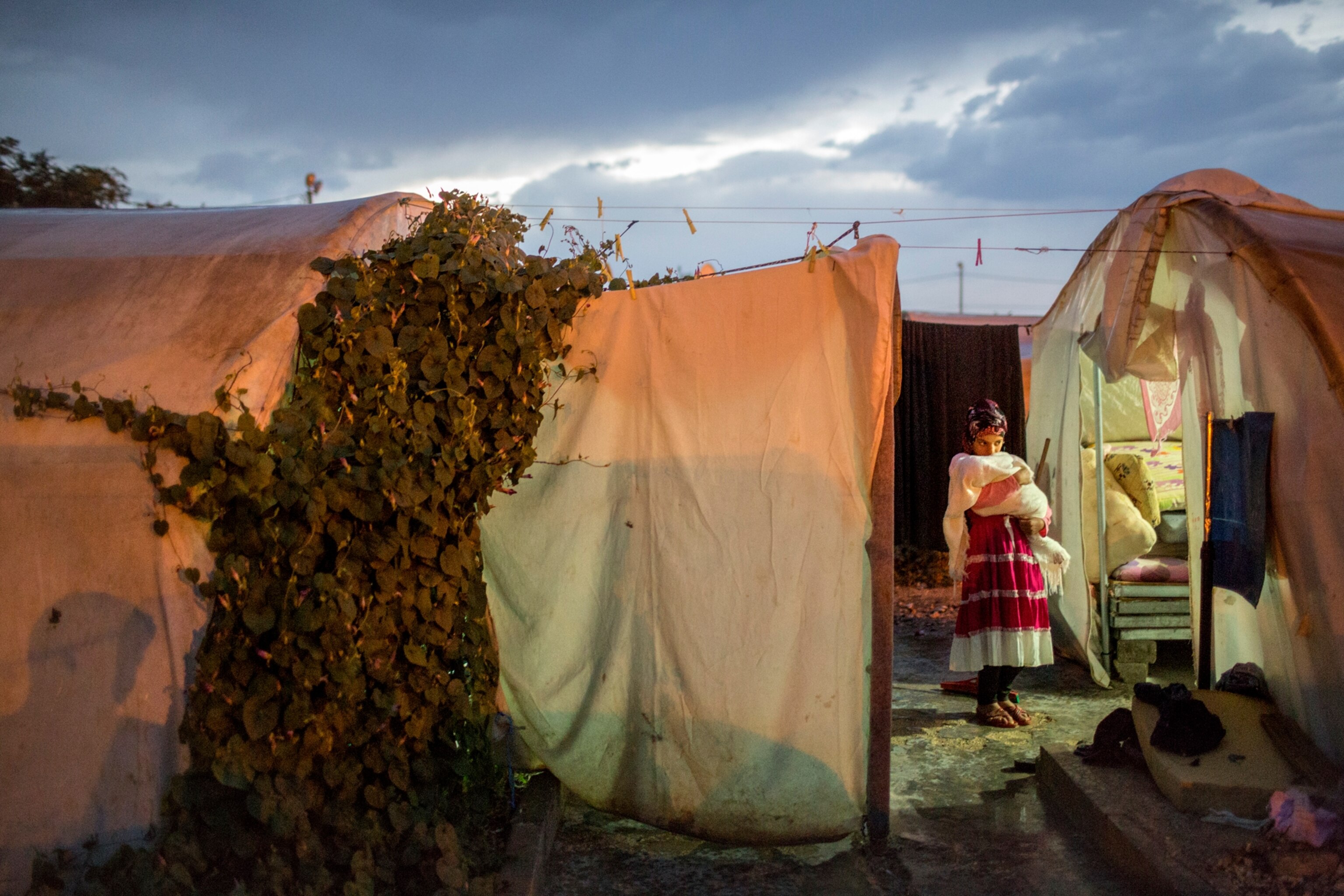
“Everyone thought this would be temporary,” a Turkish baker named Mustafa Bayram told me in Kilis.
He threw up his hands. He wanted to be kind—Turkey had been kind, spending billions of dollars on housing and feeding refugees—but the Syrians were still coming. They were driving Bayram out of business. They worked for slave wages. They opened illegal shops, undercutting him. “I think,” he said, bitterly, “we should gather them up. We should put them all into one giant camp.”
The war in Syria boiled and boiled. Engin was losing his local workers. Each day a few didn’t show up for roll call. They abandoned his archaeological dig at the Oylum mound and slipped over the border. They may have joined the jihad.
I walked on through autumn. Temperatures dropped. I found myself stepping over columns of ants that crawled manically through brittle yellow grass. They shone glossy black, as if oiled, and vanished down their holes. They carried enormous quantities of seeds. It seemed a message, to lay in provisions like this. After a false Arab Spring, a hard winter was coming to the Middle East.
